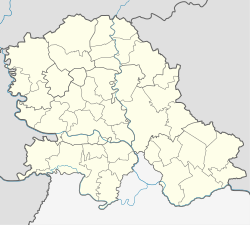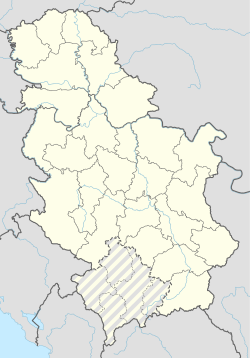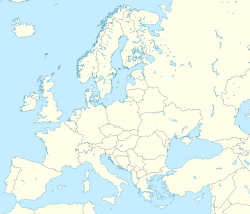Vlajkovac
Vlajkovac
| |
|---|---|
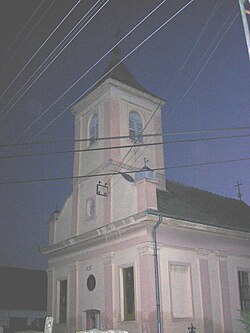 The Orthodox Church | |
| Coordinates: 45°04′17″N 21°12′01″E / 45.07139°N 21.20028°E | |
| Country | |
| Province | |
| District | South Banat |
| Municipality | |
| Elevation | 80 m (260 ft) |
| Population (2002) | |
• Vlajkovac | 1,178 |
| Time zone | UTC+1 (CET) |
| • Summer (DST) | UTC+2 (CEST) |
| Postal code | 26332 |
| Area code | +381(0)13 |
| Car plates | VŠ |
Vlajkovac (Serbian Cyrillic: Влајковац; Hungarian: Temesvajkóc; Romanian: Vlaicovăț) is a village in Serbia. It is situated in the Vršac municipality, in the South Banat District, Vojvodina province.
Name
[edit]In Serbian, the village is known as Vlajkovac (Влајковац), in Romanian as Vlaicovăț, in Hungarian as Temesvajkóc, and in German as Wlajkowatz.
History
[edit]Bronze Age graves of south Russian steppe nomads were found in the village. Just outside the village there are Vlajkovac circles that have a diameter of around 300 meters and are considered to belong to the Vinča neolithic culture. Vlajkovac circles have been plowed over several times and now only their outlines are visible. They are visible from satellites.[1]
Ethnic groups (2002 census)
[edit]The village has a Serb ethnic majority with a seizable Romanian and Hungarian minority and its population numbering 1,178 people (2002 census).[2]
- Serbs = 656 (55.68%)
- Romanians = 288 (24.44%)
- Hungarians = 182 (15.44%)
- Yugoslavs = 16
Population history
[edit]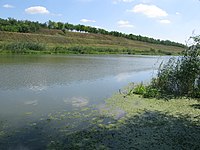
- 1961: 1,855
- 1971: 1,530
- 1981: 1,356
- 1991: 1,328
- 2002: 1,178
See also
[edit]References
[edit]- ^ "Mistični vršački krugovi: 1.500 godina stariji od Stounhendža! (VIDEO)".
- ^ Popis stanovništva, domaćinstava i stanova u 2002, Stranovništvo - nacionalna ili etnička pripadnost - podaci po naseljima, knjiga 1, Republika Srbija, Republički zavod za statistiku, Beograd, Februar 2003.
Further reading
[edit]- Slobodan Ćurčić, Broj stanovnika Vojvodine, Novi Sad, 1996.

